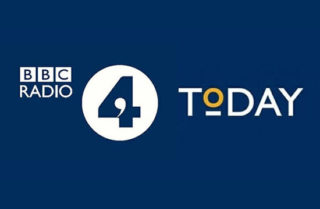The UK international trade secretary Liam Fox announced today that Britain can be an “exporting superpower” post-Brexit, and that he wants exports as a proportion of UK GDP to rise from 30% to 35%. BBC Radio 4’s Today Programme asked our CEO Jurga Zilinskiene and Chairman Ian Miller MBE, what exporters like Today Translations want the government to do to help British companies boost trade after Brexit.
Jurga explained that translations are the lifeblood that help our clients secure deals across the globe and how all forms of communication, even Emoji, are “evolving and changing, and [each] has its own little dialects.” This presents opportunities to reach customers in other countries via smartphone using ever more effective and creative ways.
Ian spoke about how the UK was lagging behind other nations in supporting their exporters. “Other countries are far, far stronger, have… government support far, far better, far more organised, and far more aggressive [for exporters] than the UK. I’ve worked in the United States and I’ve seen how the US, how France, and how other countries push their businesses far, far harder.”
Obstacles Still Exist for British SMEs Looking to Export
Praveen Vijh, co-founder of snack bar company Eat Natural in Essex told of other popular challenges saying, “I’ve just come back from a trip to Japan, actually, and it’s very complicated to work with new nations and new customers. I would probably say we are looking at around 5 to 7 years before we’ll be able to get any traction in Japan”.
The majority of his company’s exports are to the European Union, and he fears a lack of support from the UK government after Brexit.
Baroness Fairhead CBE, Minister of State at the Department for International Trade, was quick to offer assurances.
“Our message to small family businesses is… we will provide support to you because you are more likely to have a flourishing business [if you export].” When it comes to exports, Britain is “in the middle of the pack of the G7. We want to be at the top,” she continued.
Jurga and Ian are working closely with the Council of British Chambers of Commerce in Europe (COBCOE) and other business partners in the UK and overseas to facilitate trade and export opportunities today and post-Brexit.
Those familiar with the Russian and other languages spoken by our team during the BBC interview will probably have guessed the words were taken from our Anti-Bribery Policy which is translated into seven languages and can be downloaded on this page: https://www.todaytranslations.com/news/50-translations-of-fcpa-no-room-for-grey-areas-in-corruption-law

